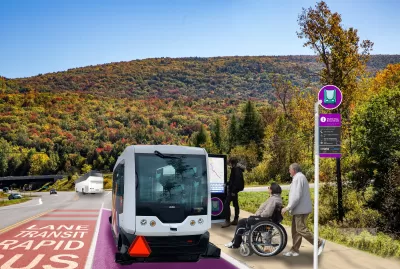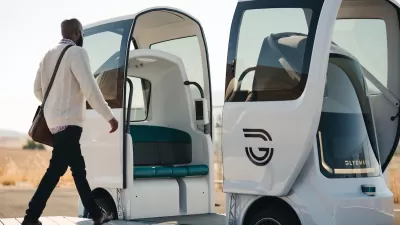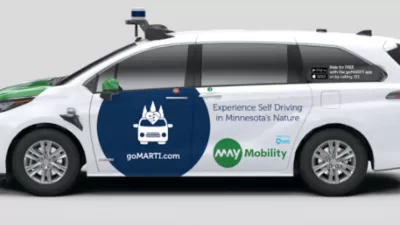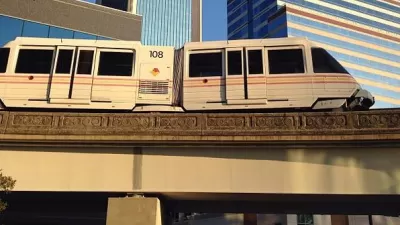Two autonomous shuttle companies closed last week, but one industry observer sees reasons for optimism for the long-term viability of the still-speculative market.

Brad Templeton provides commentary on the demise of two autonomous shuttle companies in the space of a week: Optimus Ride, an autonomous shuttle company in Boston, and Local Motors, maker of the Olli shuttle.
In examining the two closures for lessons about the viability of the autonomous vehicle industry, Templeton notes the numerous players in the shuttle market, "including May Mobility, early pioneer Navya, EasyMile, 2getThere, Transdev, Auro/Ridecell and many other players in China." The size of the market is enabled by smaller barriers to entry compared to the personal car industry, according to Templeton. But those smaller barriers to entry also imply smaller ambitions:
The robotaxi vision is world-changing because it allows car replacement, which means a big change in how our cities work. Shuttles are much less ambitious. Mostly, they make transit a bit cheaper, which is far from world-changing. It’s a pretty meager thing for self-drive technology to be doing.
And autonomous shuttles have yet to achieve even those "meager" advancements—shuttles still aren't very cheap because of the safety driver. Still, Templeton sees opportunities from the current obstacles, including the ability to operate frequent, 24/7 transit without drivers (which are in short supply) and more efficient mode switching.
More details of Templeton's optimism are available at the source article below.
FULL STORY: Two Self-Driving Shuttle Companies Fail In One Week. What Does It Bode?

Alabama: Trump Terminates Settlements for Black Communities Harmed By Raw Sewage
Trump deemed the landmark civil rights agreement “illegal DEI and environmental justice policy.”

Planetizen Federal Action Tracker
A weekly monitor of how Trump’s orders and actions are impacting planners and planning in America.

How Atlanta Built 7,000 Housing Units in 3 Years
The city’s comprehensive, neighborhood-focused housing strategy focuses on identifying properties and land that can be repurposed for housing and encouraging development in underserved neighborhoods.

In Both Crashes and Crime, Public Transportation is Far Safer than Driving
Contrary to popular assumptions, public transportation has far lower crash and crime rates than automobile travel. For safer communities, improve and encourage transit travel.

Report: Zoning Reforms Should Complement Nashville’s Ambitious Transit Plan
Without reform, restrictive zoning codes will limit the impact of the city’s planned transit expansion and could exclude some of the residents who depend on transit the most.

Judge Orders Release of Frozen IRA, IIJA Funding
The decision is a victory for environmental groups who charged that freezing funds for critical infrastructure and disaster response programs caused “real and irreparable harm” to communities.
Urban Design for Planners 1: Software Tools
This six-course series explores essential urban design concepts using open source software and equips planners with the tools they need to participate fully in the urban design process.
Planning for Universal Design
Learn the tools for implementing Universal Design in planning regulations.
Jessamine County Fiscal Court
Caltrans
Institute for Housing and Urban Development Studies (IHS)
City of Grandview
Harvard GSD Executive Education
Toledo-Lucas County Plan Commissions
Salt Lake City
NYU Wagner Graduate School of Public Service





























